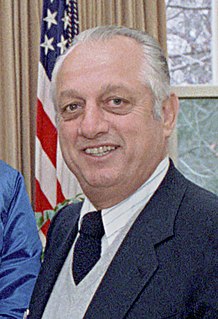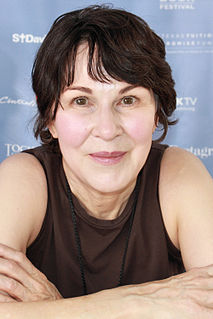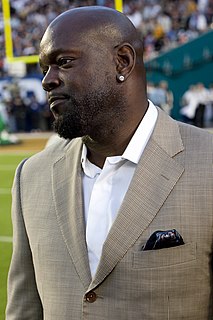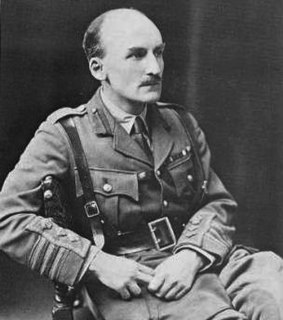Top 317 Walter Mondale Quotes & Sayings - Page 6
Explore popular Walter Mondale quotes.
Last updated on April 21, 2025.
How much he was shaped by being in the hospital so much as a kid. Because he was sick, he was a reader, and because he was a reader, Kennedy had heroes. Because he had heroes, he went into politics. [Kennedy liked Sir Walter Scott, King Arthur's knights, and biographies of political leaders.] If he hadn't been sick, he might have been like everybody else in the family, a jock.
Walter had never liked cats. They'd seemed to him the sociopaths of the pet world, a species domesticated as an evil necessary for the control of rodents and subsequently fetishized the way unhappy countries fetishize their militaries, saluting the uniforms of killers as cat owners stroke their animals' lovely fur and forgive their claws and fangs. He'd never seen anything in a cat's face but simpering incuriosity and self-interest; you only had to tease one with a mouse-toy to see where it's true heart lay...cats were all about using people
With a historical novel you know that liberties are being taken. Since Walter Scott, we know that poetic license, dramatic license, that events been conflated and that liberties have been taken, characters ditto, dates rearranged. But people don't seem to understand that movies are fictions, they are dramatizations, at least historical movies, and we should accord the moviemakers some of the same understanding and latitude. When you go to a movie you know it's a dramatization and not history.
I managed the Dodgers for 20 years. It's hard to believe that there are only four guys in the history of baseball who managed the same team for 20 years or more. One was owner of the team, Connie Mack. Another was part owner of the team, John McGraw. Then there was my predecessor, Walter Alston, and me. It's amazing. In the 20 years I managed the Dodgers, 210 managers were fired.
There were times when I asked myself whether I was being principled or simply a coward.... I was wrapped in the cocoon of tennis early in life, mainly by blacks like my most powerful mentor, Dr. Robert Walter Johnson of Lynchburg, Virginia. They insisted that I be unfailingly polite on the court, unfalteringly calm and detached, so that whites could never accuse me of meanness. I learned well. I look at photographs of the skinny, frail, little black boy that I was in the early 1950s, and I see that I was my tennis racquet and my tennis racquet was me. It was my rod and my staff.
Between now and when we graduate next year there are at least ten weeks' holiday and five random public holidays. There's email and if you manage to get down to the town, there's text messaging and mobile phone calls. If not, the five minutes you get to speak to me on your communal phone is better than nothing. There are the chess nerds who want to invite you to our school for the chess comp next March and there's this town in the middle, planned by Walter Burley Griffin, where we can meet up and protest against our government's refusal to sign the Kyoto treaty." -Jonah Griggs
One time, the Library of Congress was giving books to local libraries around the country on Islam. The library of a guy named Walter Jones, who's a member of Congress from North Carolina, got some books and resource materials, and he got up in the press and said he didn't want any Muslim books in the library. And the people said, "Wait a minute, that's kind of anti-Muslim." He said, "Oh no, Keith Ellison is a friend of mine." And I said, "You know what? We are friends, but you're wrong about this.
Bertrand Russell said, 'Electricity is not a thing like St. Paul's Cathedral; it is a way in which things behave.' And it's not 'they' who say, but Walter Benjamin who said, 'Things are only mannequins and even the great world-historical events are only costumes beneath which they exchange glances with nothingness, with the base and the banal.' In September, 1940, Benjamin died under ambiguous circumstances in the French-Spanish border town of Portbou, while attempting to flee the Nazis.
As you get older - for example, in our band we have members of our orchestra, like Carlos Enriquez and Ali Jackson and Walter Blanning. I taught them when they were in high school, and now they teach me.I'll regularly call Ali and say, "Man, can you break this rhythm down for me?" Or Carlos was actually our music director in Cuba, and he's been instrumental in a lot of my education, and I started to develop a saying with them, because they tease me all the time - you get older, you have that familiar relationship - I say, "You have to follow your young leadership, too."
Before this war is over,' [Walter] said - or something said through his lips - 'every man and woman and child in Canada will feel it - you, Mary, will feel it - feel it to your heart's core. You will weep tears of blood over it. The Piper has come - and he will pipe until every corner of the world has heard his awful and irresistible music. It will be years before the dance of death is over - years, Mary. And in those years millions of hearts will break.
I am not a conservative but I have spoken out for years against the staggering amount blind hatred directed at black conservatives by liberals. Liberals are shockingly quick to demean and dismiss brilliant black people like Rice, Carson, Supreme Court Justice Clarence Thomas, U.S. Senator Tim Scott (R-SC), Professor Walter E. Williams and economist Thomas Sowell because they don't fit into the role they have carved out for a black person in America. Black Americans must be obedient liberals on all things or risk being called a race traitor or an Uncle Tom.
Because of Walter, we did it the other way around. We also worked with an awesome sound designer named Will Patterson who just worked for four years on Terrence Malick's films. He did a lot of conceptual work to make the soundscapes in the jungle have this surreal quality, to blend these two films because a lot of the images are about this parallelism between the movies. The sound was very integral to fusing everything.
So far Kat has been through all the Wa's she could think of, but Hale hadn't admitted to being Walter or Ward or Washington. He'd firmly denied both Warren and Waverly. Watson had prompted him to do a very bad Sherlock Holmes impersonation throughout a good portion of a train ride to Edinburgh, Scotland. And Wayne seemed so wrong she hadn't even tried. Hale was Hale. And not knowing what the W's stood for had become a constant reminder to Kat that, in life, there are some things that can be given but never stolen. Of course, that didn't stop her from trying.
What we definitely agree with Walter on is that filmmaking is teamwork. It's one of the only arts that is truly based in the work of a team. Anyway, Werner he told us a lot of practical things. How to hang a hammock. He'd circle a map and give us a notebook with directions to get to certain places that were out of the way. He told us to drink the river water and not use purifications tactics that only "New Age assholes" used. He said that if we saw piranhas, we should jump in and swim with them. We did all of this. We took his word as gospel.
Are they real fires? Or are people just reacting to something? Just because there’s an alarm going doesn’t mean it’s a fire. And I think that people are confusing the two. It’s only a fire when it offends the fans, and the fans turn on you. Tosh has fans, and they get the joke. If you’ve watched enough Tracy Morgan, you let the worst thing go by. When did Tracy Morgan become Walter Cronkite? You have to mean something to me to offend me. You can’t break up with me if we don’t date.
The War of the Roses in England and the Civil War in America were both intestinal conflicts arising out of similar ideas. In the first the clash was between feudalism and the new economic order; in the second, between an agricultural society and a new industrial one. Both led to similar ends; the first to the founding of the English nation, and the second to the founding of the American. Both were strangely interlinked; for it was men of the old military and not of the new economic mind - men, such as Sir Humphrey Gilbert and Sir Walter Raleigh - who founded the English colonies in America.















